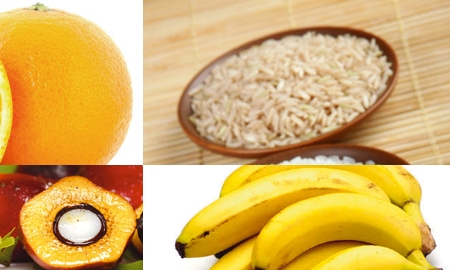While oil, minerals and services make up the bulk of Suriname’s gross domestic product, agriculture plays a smaller, yet perhaps equally important, role. Employing about 12% of the total workforce and comprising more than 11% of total export earnings, the agriculture and fisheries sectors in Suriname are large enough to make the country self-sufficient in terms of food production. Moreover, there is enough spillover to position Suriname as a potential provider for the rest of the Caribbean region.
Many of Suriname’s neighbors have shifted from agriculture toward tourism, and consequently often have difficulties in fulfilling domestic demand. Tourists only serve to exacerbate this problem of limited agricultural production, thus creating the need to import food. As Suriname has maintained agriculture as a staple economic activity, it is well placed to be the region’s food storehouse. Already, its export-oriented agricultural and fisheries sectors serve markets – including the U.S., the EU, and Japan – known for their high food standards.
“I see Suriname as the primary agricultural country, with food production that can support the region,” says Djaienti Hindori, CEO of Landbouwbank N.V., a primarily agricultural bank that is celebrating its 40th anniversary this year. “The country is blessed with very fertile soil. It has the infrastructure – both wet and dry – to comply with all the conditions required for good agricultural production. All we need to do is organize it in such a way that we can get good primary production, add value, and have all the transport facilities in place to cater to our neighboring countries in the Caribbean.”
For the Ministry of Agriculture, Animal Husbandry and Fisheries, two essential components of growing the sector are sustainability and food safety, which can both be attained with the help of new technologies. One foundation focused on research in this field is the Center for Agricultural Research in Suriname (CELOS).
Linked with Anton de Kom University, CELOS was established in 1967 with a mandate to find solutions for the agricultural and forestry sectors through technology. Current programs concentrate, for example, on supporting the animal husbandry sector by conducting field research on the feasibility of the local production of fodder components, such as soya and corn. Other projects include the study of cashew cultivation on low fertility soils in Suriname, as well as soil science research focused on the soil-plant relationship and aimed at determining optimal soil management of various economical crops.
Suriname’s banking sector is also active in promoting agriculture. Landbouwbank, for instance, has created special financial tools to support the introduction of more efficient and capital-intensive production models to replace the more labor-intensive ones, a move that will enable farmers to have more land suitable for agriculture and of course, raise productivity.
Ms. Hindori says the bank invests in the modernization of the agricultural sector “to encourage more participation from the younger farmers. We want these young people to believe in the sector.”
She adds that Landbouwbank is looking to collaborate with universities in Suriname to promote food sciences and agricultural programs, and that it seeks ways to guarantee financing in the sector “simply because agriculture is highly viable.”
The government has targeted rice, citrus, bananas, palm oil, and fish and shrimp for investment, and relevant infrastructure is being put into place to further strengthen the industries. According to Ms. Hindori, however, further investment is needed. “Suriname needs investments in logistics, infrastructure, and equipment to tap into its natural assets. That is exactly where we need partnerships. They can supply the knowledge and financing, while we take care of the resources,” she says.
Fortunately, the country’s calling card of sustainability is helping attract these investments. “Suriname is gradually gaining credibility as a trading partner. Through its investments, the plans, and the objectives, the country has demonstrated its commitment to projects that are long-term and sustainable,” says Ms. Hindori.

0 COMMENTS